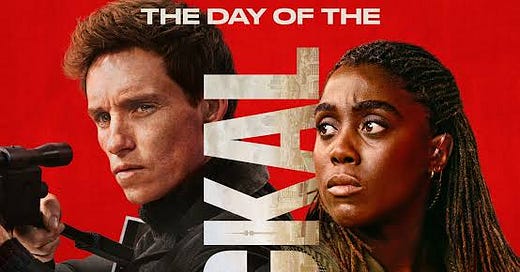“In this country, it is wise to kill an admiral from time to time so to encourage the others.” - Candide, Voltaire
It was Saturday evening and I was queuing to watch True Lies at the local cinema. I heard a dull thump in the distance. Like thunder. But there was no storm. I later found out that the IRA had detonated a semtex bomb on London Road in Bognor Regis at 17:57. No one was hurt but the Woolies next door took a pounding.
It was summer and I was home from uni, working in a plastics factory, and smoking a lot of dope. A couple of days after the blast, I was skinning up in my bedroom when there was a knock at the door. “We’re from the police, is Matthew XXX at home?”. I quickly hid my gear and attempted to still my racing heart while my life flashed in front of my eyes. Would I give up my contacts? You betcha. I would fold like origami.
There were two of them. Their first words were not (as I might have expected based on my watching of The Bill) “We’ve got you banged to rights, you slag”. Rather: “Were you in the town center on Saturday?”
Apparently I had used my debit card to withdraw some money from a cashpoint at around 3pm near the site of the bike bomb. Cinema tickets ain’t cheap. They wanted to know if I had seen anything. I had not. Their parting shot was: “You look like you’ve seen a ghost” Now obviously they knew I was up to something but I wasn’t a terrorist and they had bigger fish to fry.
That bomb was part of a broader campaign of political violence by various factions in Northern Ireland. Like most such conflicts, no one comes out of this looking good. The British army catastrophically bungled its “peace-keeping” efforts. The Republican and Loyalist paramilitaries both seemed to devolve into gangsterism and brutality for brutality’s sake. Yet despite all this, less than four years after the bombing that ruined my Monday, a durable peace accord had been signed. This had come about because everyone was just sick of it all.
Would the Good Friday Agreement have been signed without the political violence that proceeded it? The story of the UK suffragettes has stuck in my since listening to the recent Origin Story 2-parter. There was a non-violent wing of the movement and a wing that was decidedly less squeamish. Now one rejoinder to political violence is that if you don’t like the status quo, you can always vote. Except the suffragettes had no vote. They had no voice. But also they also had no exit. They couldn’t secede, with walls of bolsters and pillows cutting through the marital beds of the kingdom. Nevertheless, political violence is dangerous if you want to win those sympathetic to your course. In the end, women got the vote not only because of the demonstrations or the bombs but mostly because of the First World War. Not all politics is violence but all violence is political.
I have recently been watching The Day of the Jackal. It is ludicrous fun. I like its international jet set stylings - like James Bond but with the occasional human emotion. The cast is fantastic. The book it is based on came out in 1971. In the original, the Jackal was hired to kill De Gaulle - which would be problematic from a plot point now because no one knows who he was.
”We want you to kill De Gaulle”
“Who?”
“The President of France”
“Hang on, I’m going to need to Google him. Ah. He died 54 years ago”
“Oh, yes, you’re right. Our bad. Can you post some rude things about him on social media then?”
In the update, the Jackal is hired to kill the richest man in the world, a tech CEO whose latest invention will expose all financial corruption globally. One of the issues with the series is that it is so far-fetched. Surely no one would assassinate a CE-
On December 4th, a man shot and killed Brian Thompson, CEO of UnitedHealthcare. At this stage, the identity and the motive of the killer are unknown. The words "delay", "deny", and "depose" were found written on cartridge cases at the scene. "Delay, deny, defend," are a well-known insurance industry phrase about not paying out claims.
Let me say that I do not condone the targeting killing of corporate executives (although some have sorely tempted me). However the public response to the shooting has been, well, mixed. For some, the killer is a hero. Healthcare in the US is expensive and inefficient and many ordinary people can unnecessarily lose their lives and livelihoods if they get sick. And some people take advantage of that.
Now America is still, kinda, a democracy and it has a legal system. However the political and legal systems are weighted towards those who have money. The question CEOs should be asking is why so many people are angry with them. I suspect that the answers will not be hard to find.
I do also wonder about incentive structures. While falling short of murder, should CEOs get electric shocks whenever their NPS falls below a certain threshold?





Or a comment on a complexion that even many years in Oz have failed to shift ;P